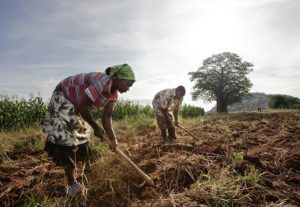
The Netherlands has contributed $28 million to back FAO’s work to boost the resilience of food systems in Somalia, Sudan, and South Sudan – part of a new initiative to scale-up resilience-based development work in countries affected by protracted crises.
In such contexts, humanitarian interventions often focus on meeting immediate and urgent needs, like providing shelter or food aid. In contrast, FAO’s Food and Nutrition Security Resilience Program: Building Food System Resilience in Protracted Crises (FNS REPRO) aims to show that development interventions centerd on strengthening livelihoods over the longer-term can take place at a large scale – even in unstable operational theatres.
The funding agreement was signed on Monday by the Minister for Foreign Trade and Development Cooperation of the Netherlands, Sigrid A.M. Kaag, and FAO Director-General Qu Dongyu on the side-lines of the United Nations General Assembly in New York (17-30 September).
“Countries and regions affected by protracted crises are often reliant on humanitarian aid and too frequently written off as places where agricultural and rural development cannot take place at scale. Our work shows that is not true,” Qu said. “We know it can. This is why this project includes a robust learning agenda that will help capture successful case studies that can be replicated in other communities facing similar challenges”.
“This is a major step forward in our collaborative effort to build on the Security Council’s ground-breaking resolution last year on conflict and food security. Through FNS-REPRO, we’ll be operationalizing a new way of working in humanitarian contexts, one that recognizes that sustained rural development initiatives,even in situations of protracted instability, we have a key role to play in preventing and mitigating food crises,” said Kaag.
FNS-REPRO’s work will unfold along three broad tracks: improving rural communities’ access to and management of natural resources; generating enhanced and new livelihood opportunities along agricultural value chains; and enhancing people’s capacity to explore and take advantage of those new opportunities.
Additionally, by helping communities identify and mitigate risks, improve their management of natural resources, establish more resilient livelihoods and increase local agricultural production, the project intends not only to improve food and nutrition security but also to contribute to reducing conflict and sustaining peace.
